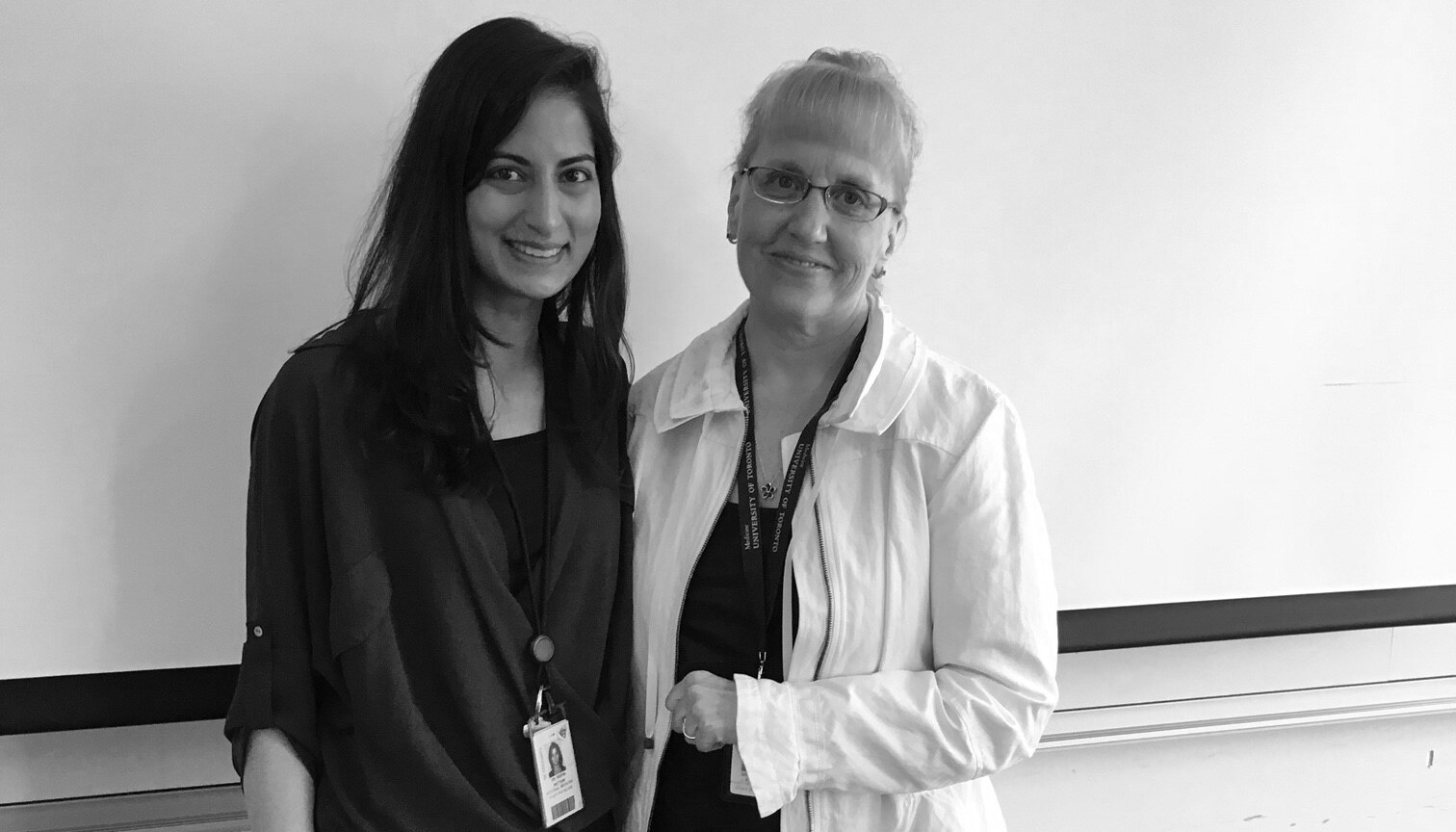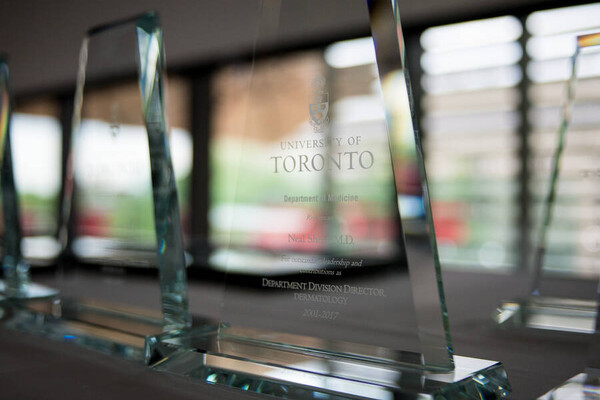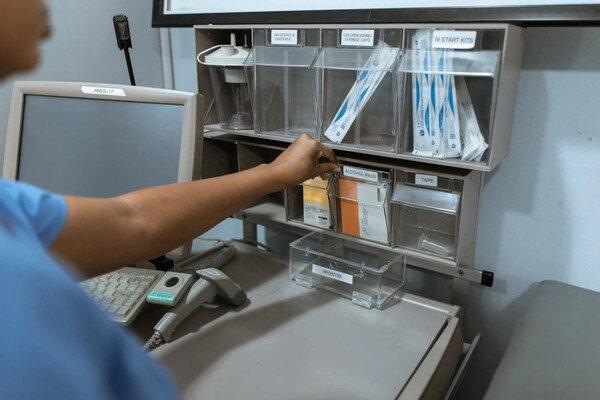Main Second Level Navigation
- Welcome
- Why Toronto?
- History of the Department
- Vision & Strategic Priorities
- Our Leadership
- Our Support Staff
- Location & Contact
- Departmental Committees
- Department of Medicine Prizes & Awards
- Department of Medicine Resident Awards
- Department of Medicine: Self-Study Report (2013 - 2018)
- Department of Medicine: Self-Study Report (2018 - 2023)
- Communication Resources
- News
- Events
Rude, competitive, cliquey: What to do about toxic behaviour in medicine

Reena Pattani & Sharon Straus
"...you are a c—. Crash and burn as you deserve to do!! … Sincerely, F— YOU"
This is not the ugly schoolyard talk of a bully. It is part of an email sent by a physician to the president of the Ontario Medical Association, Dr. Virginia Walley, in 2016. The emailer’s qualm? The financial terms of a tentative agreement that the OMA was negotiating with the government. When the emails were brought to the attention of the CPSO, the physician responsible was reprimanded, suspended for one month, and ordered to pay a $6,000 fine to cover legal costs.
Although the language in the email came as a shock to many, the presence of toxic behaviour in medicine has been well-documented. A review on this topic reported that almost 60 percent of medical trainees experienced harassment or discrimination over the course of their studies. Staff physicians don’t do much better: Another study reported that 30 percent of physicians said they experience rudeness or aggressiveness from other health professionals on a weekly basis!
The stakes are high for health care, which presents unique consequences of incivility. In one oft-cited study, investigators examined the impact of rudeness from patients on health care–team cohesion and effectiveness: Teams that encountered rude behaviours made poorer medical decisions. Although there are no experimental studies that examine the impact of disruptive physician behaviour on patient outcomes, most clinicians report (and experts agree) that it has an adverse effect on how patients fare. Exposure to insensitive behaviours also has a negative impact on learners, including potentially powerful effects on their own future practice.
With the barrage of egregious behaviours that we are all witnessing, it is increasingly clear that we need to build systems that serve as a check against some of our more base human impulses. To date, most of the strategies used to tackle incivility have focused on addressing awareness and education at an individual level. These interventions don’t always have a lasting impact. Not enough attention has been paid to the role that organizations can play in setting the tone for professionalism. It is simplistic to think that the individuals doing the bullying are just “bad apples”; sometimes they are acting out due to their own personal challenges. Looking after patients with acute and life-threatening conditions can be traumatizing for providers and this may cause them to burn out and be callous towards others. That’s not to say that individuals shouldn’t be held accountable! But institutions must lead change.
We recently interviewed 49 physicians working in our department of medicine at the University of Toronto, across six affiliated hospitals, about incivility in medicine. All of the study participants had positive professional relationships overall, but we learned a lot about some of the toxic things that they had witnessed, heard of, or experienced, what might be contributing, and what they thought we could do collectively to clamp down on these behaviours.
The behaviours our participants described were furtive, in-person, and online. They included bullying, verbal abuse or rudeness, excessive competitiveness, and social exclusion. It was clear from their responses that these behaviours exacted a heavy toll on victims and observers. Studies have shown that people who are victimized report depression, anxiety, substance use, and burnout.
The staff we interviewed talked about the ways that the culture in medicine itself can be a driving force for bad behaviour. The silos in medicine—between specialties and between hospitals—can create “relative anonymity” so that doctors face few tangible consequences for their bad behaviour. In the words of one participant:
“I think that that landscape is a lot more complicated given the number of subspecialties, physicians… it can be very difficult to navigate, more cold, more impersonal and more a sense that the first interaction is coming from a place of conflict.”
This is compounded by the fact that it’s not always clear how, or to whom, one should report physician misconduct. Doctors work in a variety of clinical environments—most commonly as consultants rather than as employees of a hospital—and this can lead to ambiguity about the jurisdiction for addressing bad behaviour.
It’s not just administrative factors that play a role; divisive leaders, power cliques, and a culture of silence were also cited as other contributors to workplace toxicity that allows historical bullies to thrive, as has been seen in other sectors. These human resource factors can create a vicious cycle:
“I think that in large institutions that have a great deal of inertia related to these issues it can become even more disempowering at the level of an individual interaction around the prospect of, you know, authentic change.”
So what can we do?
Our participants suggested strategies related to preventing, reporting, and addressing incivility. They said staff should be judged on their professionalism in a way that links their behaviour to pay, promotion, and awards, for example, through regular 360-degree feedback from peers and trainees. Our participants also suggested more clarity around definitions of incivility to avoid a “grey zone” for uncivil behaviour; clearer jurisdictions for addressing it; and identified roles and responsibilities of the victim, perpetrator, and arbiter. They also recommended streamlined processes for ensuring fair investigations and clear consequences, with a focus on rehabilitation when possible. The pathways they proposed included formal reporting mechanisms online, through an ombudsperson in the department, or to a third-party. They emphasized that victims need safeguards to protect them from retribution as well as support to deal with the trauma of experiencing uncivil behaviour. Allies need to be cultivated to call out bad behaviour when they see it. When burnout is a contributing factor for perpetrators, they need to be connected with wellness programs or support. Leaders need to be equipped with the resources and training to act when unprofessional behaviour is brought to their attention; having fixed terms for leadership positions might also allow for a “refresh” when inertia for addressing incivility has taken root.
With reports of incivility on the rise, it is tempting to ask whether this reflects a greater frequency of rude behaviours or just a greater tendency to report. Given the downstream impact on victims, witnesses, perpetrators, learners, and most importantly, patients, the answer to that question matters less than how we must respond. We can’t make people “be nice,” but we can ensure that systems are designed to anticipate and respond appropriately to bad behaviour, while also celebrating and rewarding good citizens.
Reena Pattani is a clinician teacher in general internal medicine at St. Michael’s Hospital and assistant professor in the department of medicine at the University of Toronto.
Sharon Straus is a geriatrician, clinical epidemiologist and interim physician-in-chief at St. Michael’s Hospital. She is vice-chair of Mentorship, Equity and Diversity in the Department of Medicine at the University of Toronto, and holds a Tier 1 Canada Research Chair in Knowledge Translation.
This article was originally published on Healthy Debate and is reprinted here with permission.


